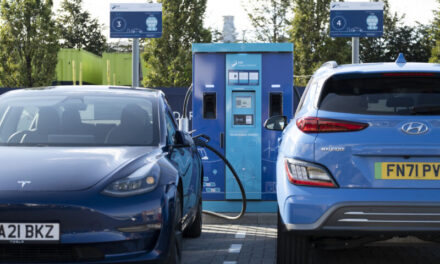As public opinion continues to turn against environmentally harmful landfill sites, ever increasingly innovative methods to improve recycling are being developed. Global Renewables is responsible for one of the most sophisticated waste treatment processes in the UK, including breaking kitchen and garden waste down into compost and methane. Brevini Power Transmission has supplied 12 planetary gearboxes which offer the reliability and efficiency necessary to keep the treatment process operational.

In March, 2007, Global Renewables signed an agreement with Lancashire County Council and Blackpool Council to process the household waste of 1.4million Lancashire residents for a period of 25 years. At the time this was the UK’s largest waste PFI contract and required the company to treat over 300,000 tonnes of household and garden waste per annum. The deal was heralded as a breakthrough for waste treatment in the UK as Global Renewables had built two revolutionary new processing facilities which would reduce the amount of waste going to landfill.
Both facilities utilise an innovative UR-3R Process® whereby general household waste – which would traditionally be sent straight to landfill – is sorted and inorganic recyclable material is recovered. After the sorting process the residual waste, which is mainly organic, is sent to a system of six large percolators.
The percolators separate and wash the organic waste which is sent to a compost hall where it is transformed into Organic Growth Medium (OGM) which will be used to plant 2.5million trees over the course of the contract. In turn the water from the percolators, which is rich in organic materials, is drained off and sent to digesters to break down and create methane. Global Renewables wanted to source a drive solution for the percolators which was as efficient as possible while offering reliability which enabled continuous operation.
Dave Brown, Brevini UK Sales Manager, comments: “We were approached by Global Renewables to design a drive solution for the 12 percolators which are spread over the two sites. The sites are responsible for treating the majority of the household waste which is generated in Lancashire and the percolators successful operation is key to the facilities’ success in reducing landfill waste. We worked closely with the company to understand the application’s requirements and design a solution which would operate efficiently and reliably.”
The percolators operate in an extremely harsh environment and operate 24/7 with reverse loading every 15 minutes; the drives needed to last the length of the contract so Brevini was asked to design a solution with a 30 year service life. It was able to design a planetary solution which used five stages to deliver a reduction ratio of 1798:1; supplying up to 1000kNm of torque at 0.8rpm. Each gearbox was driven by a 55kW electric motor; these were subsequently fitted with an inverter drive to further increase site efficiency.
Dave Brown continues: “Planetary solutions are perfect for applications which require high reduction ratios for slow and steady movement with high-torque transfer. Each reduction stage features three planetary gears inside a toothed outer ring which means that the load is spread over many contact points; this leads to less point pressure which reduces wear and minimises the risk of damage. The added bonus is that the reduced pressure means less internal friction and thus greater efficiency, meaning a smaller motor is required which results in lower running costs.”
Since the gearboxes have been installed the percolators have operated efficiently and the waste treatments plants are continuing to help reduce the amount of waste which is being sent to landfill in Lancashire.



